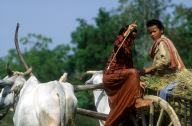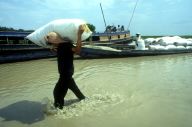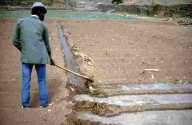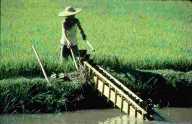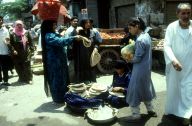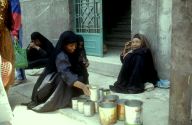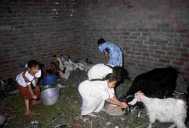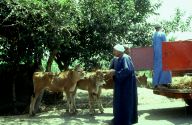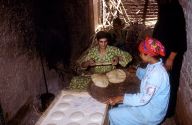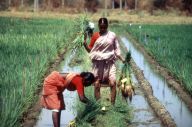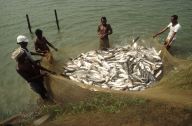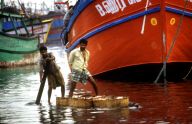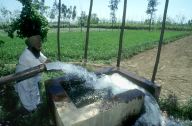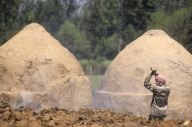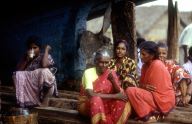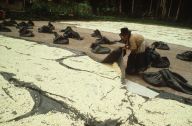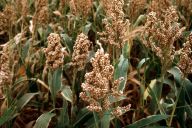|
In all societies inequalities exist, due to gender, age, religion, cultural or caste affiliation, low education or income, unemployment, diseases, disabilities, migration, or geographic location, to name a few. Stigmas and social limitations result in social exclusion; that is, marginalisation and powerlessness within the wider society. This status not only keeps excluded people poor and powerless, but it also affects feelings of self-respect and confidence.
While some developments in conventional agriculture may exacerbate inequalities, low external input sustainable agriculture provides opportunities to lessen these differences. The September 2008 issue of the LEISA Magazine (24.3) is seeking examples in which socially excluded people have overcome such barriers. For example when a marginalised group acts to improve their life; when a group of farmers join hands and gain access to land, water, or a market; or when a stigmatised cultural group finds its way to a better status through agrotourism or marketing of handicrafts or food.
Social inclusion efforts open previously closed doors. They come from government, NGOs, businesses or community
leaders. For example, in programmes in which orphans, widows, or ethnic groups increase their skills in agricultural
activities, thereby improving their livelihoods and status in a community. Or, the government may change rules to
provide particular groups of people access to markets, land or education.
LEISA Magazine is looking for stories that highlight local initiatives as well as externally driven mechanisms. What opportunities are there in small-scale agriculture, and how can marginalised groups realise them? What difficulties are faced, and what lessons have been drawn from experiences so far?
- Deadline for submission of articles: 1 June 2024
- Submit to
This e-mail address is being protected from spam bots, you need JavaScript enabled to view it
|
 News
News  Outputs
Outputs  LEISA September 2008, Vol. 24.3 Call for articles - Empowerment and social inclusion
LEISA September 2008, Vol. 24.3 Call for articles - Empowerment and social inclusion  News
News  Outputs
Outputs  LEISA September 2008, Vol. 24.3 Call for articles - Empowerment and social inclusion
LEISA September 2008, Vol. 24.3 Call for articles - Empowerment and social inclusion 
